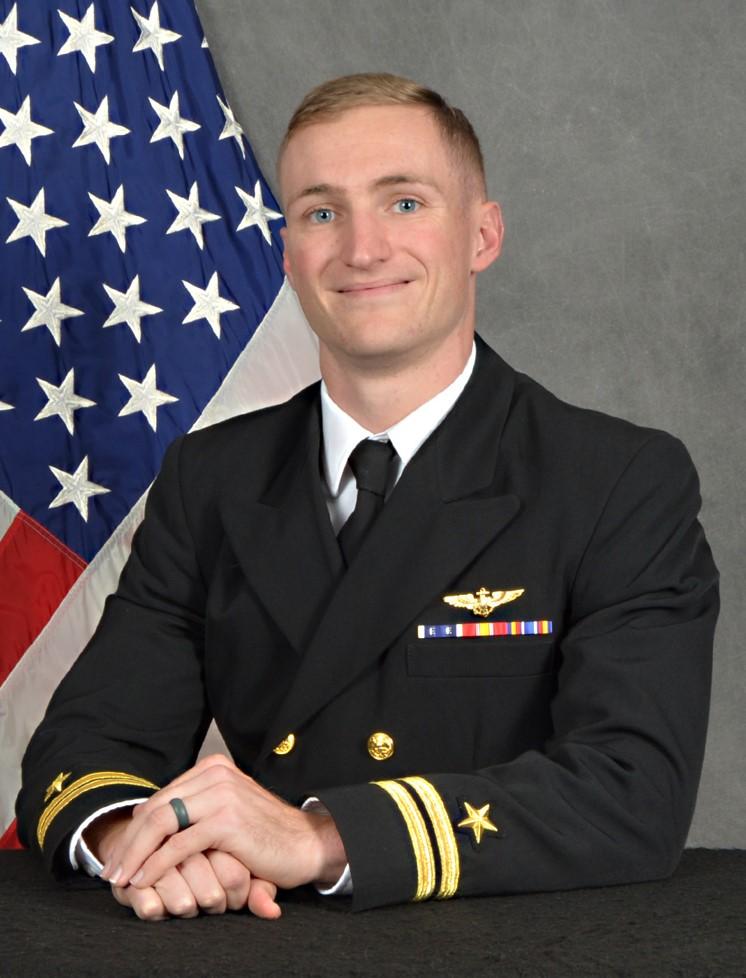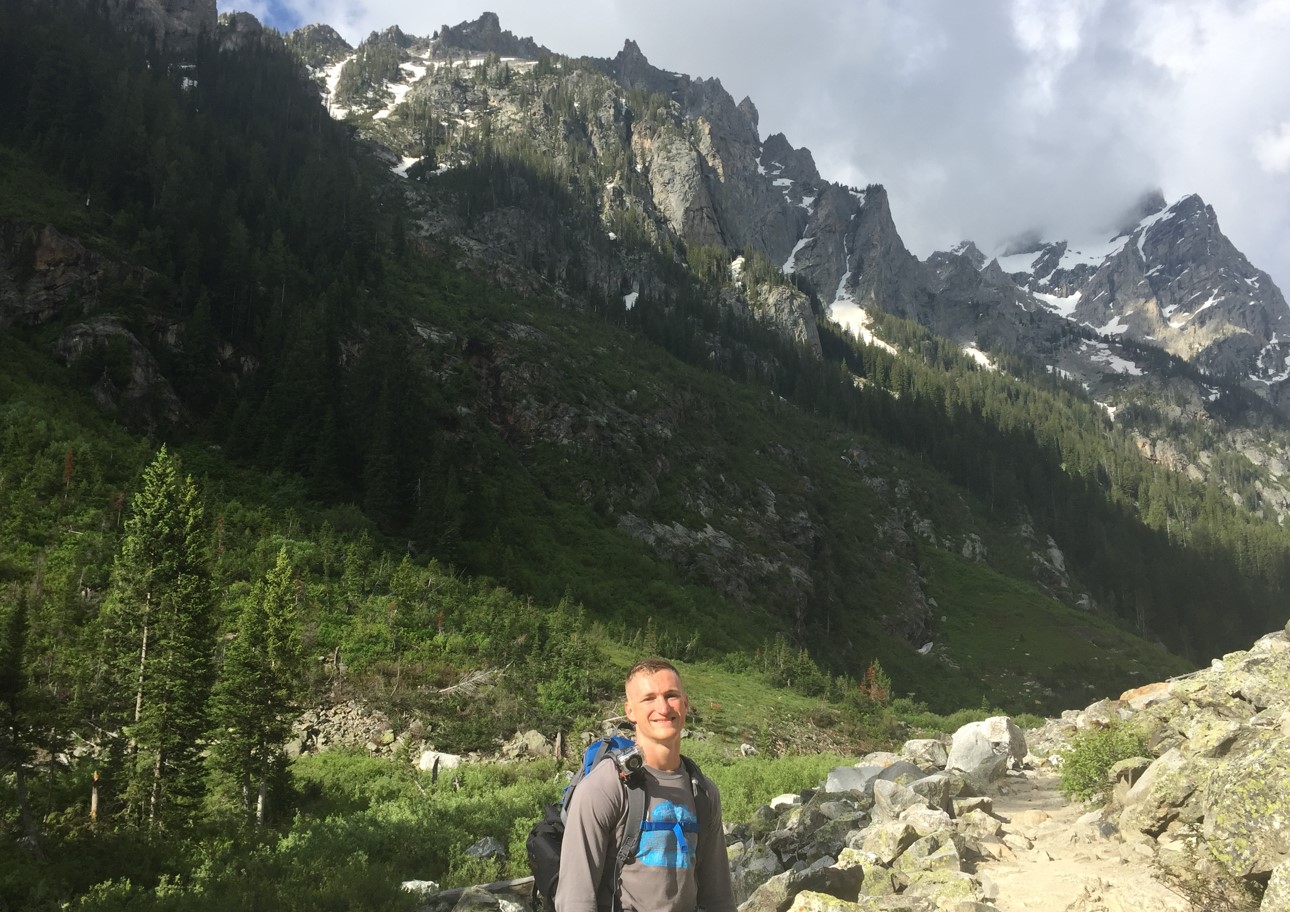
Webb Pierson was an Aircraft Commander in the U.S. Navy in early 2021 when the COVID19 pandemic forced him and his fellow officers to isolate for two weeks before their deployment. Pierson used that time to reflect on his career, ultimately deciding to pursue a graduate studies in neuroscience and genomics. Now, Pierson is finishing up that graduate work while also running Duke NROTC program and conducting research in the lab of Ornit Chiba-Falek, PhD. For this week’s Spotlight interview, Pierson talks to us about his research in the Chiba-Falek lab, how he uses the discipline and time management skills he picked up in the military to conduct this work, and his hopes for a future in academic research.
What are your current responsibilities in the Neurology Department? What does a typical workday look like for you?
I am a volunteer in Dr. Chiba-Falek’s lab. I have recently started and have finished up training with several of the bioinformaticians in the lab. I am still active duty, so I do have to work in running Duke’s NROTC program.
I normally get to work around 6-6:30 a.m. everyday and complete as much work for the NROTC program then I go to the lab from 8-9 through noon everyday. In that time I have been learning a lot from others in the lab such as Dan Gingerich. Dan has taught me a lot in how to work with the data obtained from their previous single cell experiments. Now that I have a project coming up I have started to do research into that. From noon to 1 I complete other administration work and graduate work and I teach Tuesday/Thursday from 1:45 to 3 p.m.
What projects are you currently involved with in the Chiba Falek lab, and how will that work help us better understand or treat neurological conditions?
I have just started looking into isoform variation and building on previous work completed in the lab in Parkinson’s disease using Iso-Seq. This project will help look at how isoforms may cause a disease and pathogenesis of disease through the body. I am interested in the role that alternative splicing and exon variability may play in the development of different isoforms.
Before coming to Duke, you served as a naval aviator in the U.S. Navy. How did you decide to pursue that path, and how does that experience (if at all) inform your current work?
I was an instructor pilot, aircraft commander, and mission commander of the E-6B for VQ-4 before getting orders to Duke. I was a midshipman in the University of Missouri NROTC program from 2012-2016. I had a desire to serve my country when I was in high school and applied for the NROTC scholarship to serve as an officer.
I selected pilot because I thought flying would be an exciting career to do. Flying is fun and challenging at the same time. The military just added and reinforced several characteristics for me that help with the work in neurology. Things such as time management, discipline, and leadership are traits that serve well. Those skills are very helpful. On the technical side my flying career doesn’t apply too much.
How did you decide to pursue neuroscience research, and what do you enjoy most about this work?
Once I became an Aircraft Commander I decided to pursue graduate education in genomics from Johns Hopkins. That was January 2021 when I started. My grandfather and many family members have suffered from Alzheimer’s disease.
During the COVID-19 pandemic the Navy was making us isolate for two weeks in a room prior to deployments, which I did two separate stints in that room, so I had time to reflect in early 2021 on what I wanted to do with my career and life. I did research on current progress toward neurological conditions. I was first worried that I would be too far behind after completing my undergraduate degree in 2016 but I realized there is so much work to be completed. There I decided to pivot and head toward a career in research. I enjoy pushing the boundaries and trying to unravel the mystery of what is going on in a cell or gene. I feel this work is making a small difference in the world each day.
What is the focus of your studies for your master’s degree, and how will that help us better understand the field of genomics?
My master's study capstone paper focused on epigenetic effects on late onset Alzheimer's disease. LOAD and EOAD are still trying to be understood fully, epigenetic effects that could influence or cause LOAD would help us get closer to attempting to make a cure.
What plans do you have for the future? If you could have any job in the world, what would it be?
I am currently applying to start a PhD program in UPGG at Duke. After completing that I would love to stay in research and teach. My dream job would be to be a professor at a university. I right now enjoy being in an academic setting and I would love to stay at Duke if possible.
What other passions or hobbies do you have outside of the Department?
I work out a lot. I am a CrossFit coach and compete when I have time. I also golf and brew my own beer. After those hobbies I spend time with my wife and dogs. If I get a chance I do like to hike and camp.
